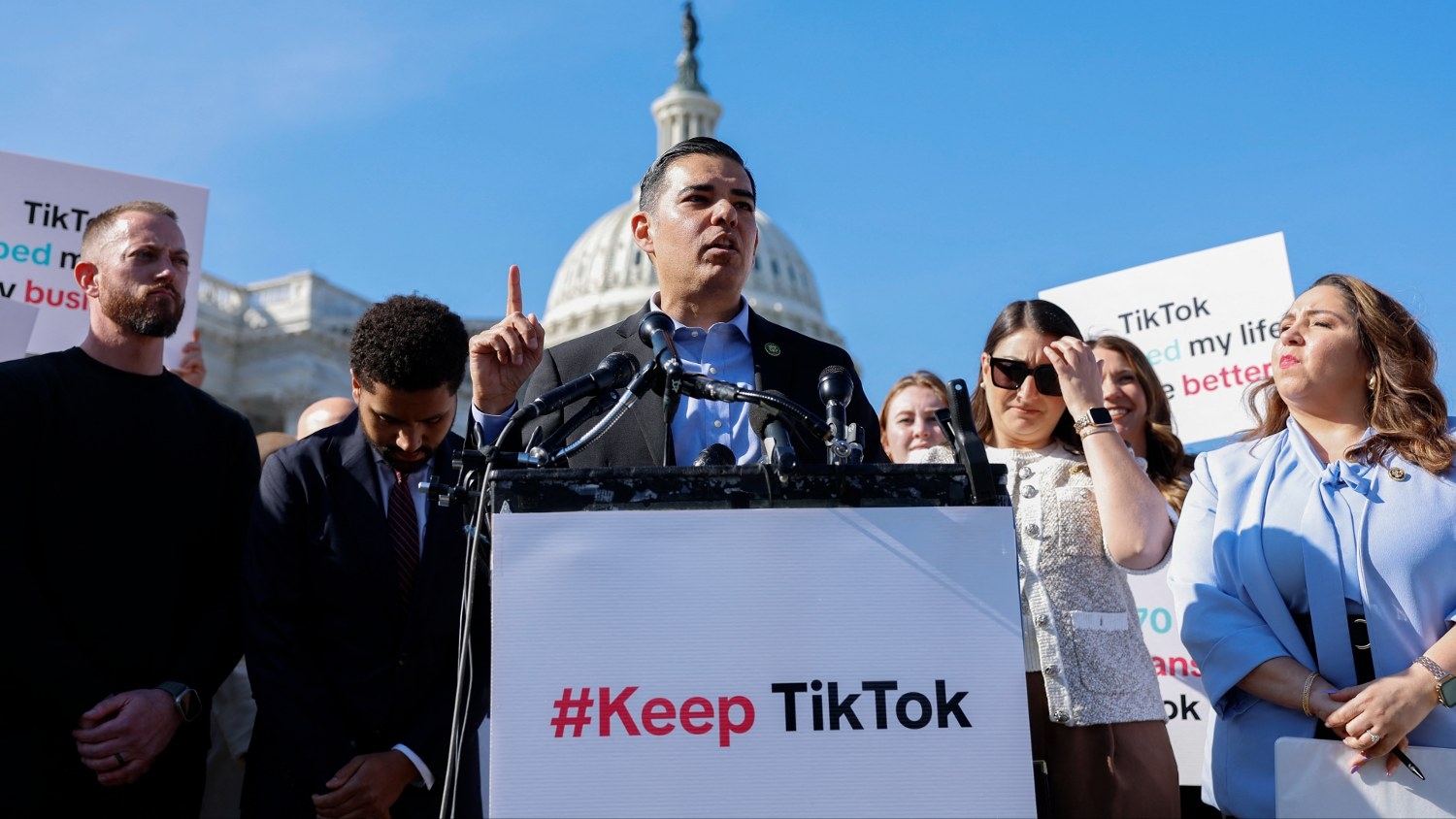TikTok: Why people think the US bill to ban app is linked to pro-Palestine content

After a bill in the US Congress was overwhelmingly passed to ban the social media app TikTok, social media users expressed outrage online and linked the move to pro-Israel groups trying to curb the surge of pro-Palestinian content on the platform.
The bill, which passed in the House by a 352-65 vote, requires that TikTok be sold to an American company or face a ban in the US.
To become law, it still needs to be passed by the Senate, which the Biden administration has been pushing to happen quickly.
The legislation was the culmination of a year-long effort and has been largely attributed to lawmakers with hawkish views on China.
TikTok was created by ByteDance, a company founded by Chinese entrepreneurs. While the app is owned by TikTok LLC, a company headquartered in the US, TikTok's ownership falls under ByteDance.
Stay informed with MEE's newsletters
Sign up to get the latest alerts, insights and analysis, starting with Turkey Unpacked
While US opposition to China helped launch the bill, journalists, experts, and social media users pointed to several issues since October that they say show pro-Palestinian content was a part of the issue behind the bill's resurgence.
"The deranged hysterical push to ban TikTok is driven by the Zionist propaganda complex," said one user on X.
One of the instances they pointed to was a reportedly leaked recording of Jonathan Greenblatt, the head of the Anti-Defamation League, in which he said, "We really have a Tik-Tok problem."
Another example users cite is that one of the major donors for Mike Gallagher, the Republican congressman who introduced the bill, is the American Israel Public Affairs Committee (Aipac).
The Wall Street Journal also reported last week that there was "new momentum in part because of anger over TikTok videos about the Israel-Hamas conflict".
In another report by the WSJ, Democrat Congressman Raja Krishnamoorthi said it was the war in Gaza that led him to support a ban on TikTok.
Krishnamoorthi said: “Oct 7 really opened people’s eyes to what’s happening on TikTok.”
Republican Senator Josh Hawley sent a letter to the Biden administration in November calling for the ban of TikTok. In the letter, he specifically cited the "ubiquity of anti-Israel content on TikTok" as one of his main reasons for advocating for the ban.
"Every serious news account of how this 'ban TikTok bill' suddenly gained momentum - seemingly out of nowhere - emphasizes Oct. 7, when Bipartisan DC became enraged so many Americans were allowed to criticize Israel," said Glenn Greenwald, a US journalist and co-founder of The Intercept.
He is now the host of an independent news programme called System Update.
Others pointed to the idea that the goal of pro-Israel groups is not to ban the social media giant, but for a pro-Israel entity to purchase the application.
Last week, former Treasury Secretary Steven Mnuchin said he is putting together a group of investors to try and buy TikTok.
"They are not trying to ban #TikTok. They are trying to use government power to force TikTok to be taken over by pro-Israel ownership to silence criticism of #Genocide and #apartheid," said Craig Mokhiber, the former director of the New York Office of the High Commissioner for Human Rights.
This article is available in French on Middle East Eye French edition.
Middle East Eye delivers independent and unrivalled coverage and analysis of the Middle East, North Africa and beyond. To learn more about republishing this content and the associated fees, please fill out this form. More about MEE can be found here.




